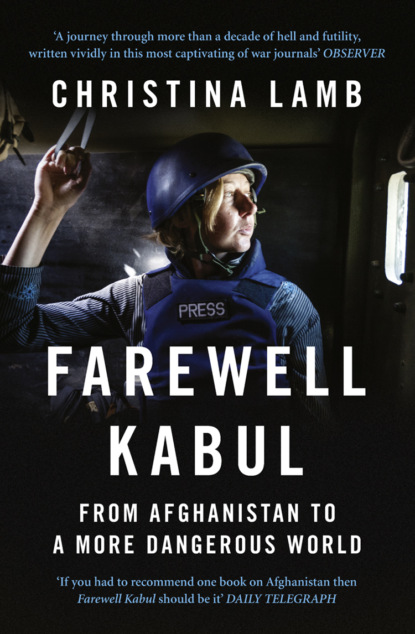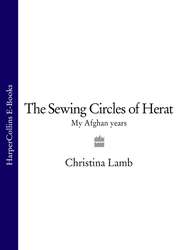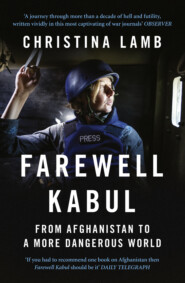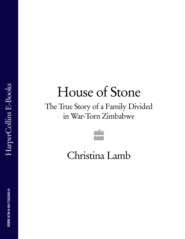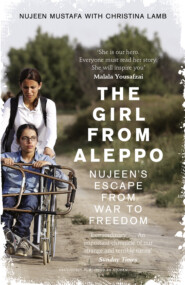По всем вопросам обращайтесь на: info@litportal.ru
(©) 2003-2024.
✖
Farewell Kabul: From Afghanistan To A More Dangerous World
Настройки чтения
Размер шрифта
Высота строк
Поля
In the end Francesc Vendrell had to call the King in Rome and persuade him to convey to his delegation that ‘rather than an Afghan of their choosing he was asking them for a Pashtun of their choosing’.4 (#litres_trial_promo) Siarat was so unhappy about the decision that he locked himself in his room, while another of their delegation, Hedayat Amin Arsala, walked out.
The chairman of the conference, Asadullah Wasifi, was furious, even though Karzai was his nephew and had studied with his son Izzatullah in Simla. ‘We elected Siarat but the Americans told me, “No, we want to bring a Pashtun.” I asked, “What kind of democracy is that, where we elect the man you want?” Then Khalilzad came to me and said, “What’s the problem? He’s your brother’s son!” I said, “Yes, he is, that’s why I know he won’t be able to run the country.”5 (#litres_trial_promo)
He refused to sign the document, pointing out that Karzai had never run anything. The only post he had ever held was as Deputy Foreign Minister in the ill-fated mujaheddin government which took power in 1992 after ousting the communists then quickly started fighting each other. Karzai only lasted eighteen months before having to flee to Pakistan, helped by Hekmatyar, putting him in the warlord’s debt.
When Karzai later asked Wasifi why he hadn’t accepted him, he replied, ‘Afghanistan is a big problem and you’re too small.’
The next challenge was persuading Rabbani to step aside. The Northern Alliance leader refused to allow his delegation to submit names of candidates for posts in the interim administration. Instead he called a press conference in Kabul, and announced that Afghanistan should hold direct elections for an interim council rather than abide by the decisions made at Bonn.
The Americans were terrified that the Northern Alliance would pull out of the discussions, and then it would be impossible to organise another meeting. Dobbins called Secretary of State Colin Powell to ask his advice. The answer was unequivocal. ‘Do not let them break up!’ he was told. ‘Keep them there; lock them up if you have to!’
Powell asked Russia, which had a close relationship with the Northern Alliance, to persuade Rabbani not to break up the conference. According to Dr Abdullah, the Russians ‘passed on a message that the world expects an agreement’, and warned that the Northern Alliance ‘shouldn’t expect that without an agreement [Russian] support … can continue’.6 (#litres_trial_promo)
The Iranians also played a key role. To his surprise, throughout the conference Dobbins found himself working closely with them, meeting the leader of their delegation, Jay Zarif, every morning for coffee and cakes to discuss developments.
Under such concerted pressure, the younger members of the Northern Alliance decided to mutiny and continue to participate in the Bonn Conference with or without the support of Rabbani. A strategic American rocket landing near Rabbani’s house may have helped.
Even so, Northern Alliance participation came at a price. They demanded three quarters of the cabinet, including the most powerful portfolios of defence, interior and foreign, as well as control of the intelligence. Finally, after a late-night session with the Americans, Indians, Russians and Iranians, the Northern Alliance agreed a deal, with the Iranians once again playing a critical role. There would be twenty-nine ministries, far more than Afghanistan needed, of which sixteen would go to the Northern Alliance. Two women were included. The King would get the meaningless title of ‘Father of the Nation’, and convene the loya jirga the following year.
The other main argument was over who would provide security for Kabul. The Northern Alliance wanted an all-Afghan force. Others feared that a Northern Alliance-led force would carry out the same kind of abuses that had occurred after the jihadis took power in 1992, which led to the emergence of the Taliban. A small multinational force under the auspices of the UN was agreed.
Thorny issues like disarming warlords were left unresolved – proceedings needed to wrap up by dawn on 6 December so the dentists could move in.
At the time the rapidly approved administration was hailed as a ‘diplomatic miracle’. The West had its military success, dismantling the Taliban regime in two months, and now it had a West-friendly interim government to replace it. Brahimi would later admit: ‘The deal was reached hastily, by people who did not adequately represent all key constituencies in Afghanistan, and it ignored some core political issues.’7 (#litres_trial_promo)
When Amerine and his men got the news that Karzai had been named interim leader of Afghanistan they were astonished. Up until then Amerine had no idea how important Karzai was – which was not surprising, as most Afghans had never heard of him. He was glad he hadn’t known. ‘If I’d been told he’s the future leader of the country, how do I put the guy in a convoy and try to make my way to Kandahar with three hundred guys?’
By then they were less than thirty miles from Kandahar. But they would never make it. The day after retaking the ‘Alamo’ hill a team of American reinforcements from headquarters flew in, this time equipped with their own trucks. They immediately started calling in airstrikes on a cave a couple of miles away which they thought might be a hiding place for Taliban.
They also brought welcome cargo – care packages from home, though not for the recently divorced Amerine. The men were on the ridge of the Alamo, reading their letters and enjoying Rice Krispies bars while Bari Gul and some of the Afghans watched the explosions, by then accustomed to the idea that these Americans could call down fire from the sky on their enemies. Amerine was sitting twenty yards away, discussing the battle plan for Kandahar with one of the staff officers who had flown in, when suddenly there was an almighty blinding flash. Amerine was tossed through the air. ‘I knew the only thing it could be,’ he said. ‘We’d been hit by our own bomb.’
They had been struck by a JDAM, one of the satellite-guided 2,000-pound bombs that the Americans had used to decimate the Taliban. ‘The person giving the coordinates to the cave accidentally gave our own coordinates,’ said Amerine.
There were bodies everywhere, and people groaning – it was clear that they had been hit badly. His own thigh was ripped open by shrapnel, and both his eardrums were perforated. Three of his men were dead, as were many of the Afghans. ‘Bari Gul and most of his men were killed in the explosion. My team was finished, everybody had to be medivaced.’
By sheer luck, Karzai was further along the ridge, and was only slightly wounded in the shoulder. ‘Hamid couldn’t believe what had happened,’ said Amerine, who years later would still find it hard to talk about that day. ‘We could easily have killed him too. I just didn’t have it in me to tell him that our own headquarters had done it.’
Amerine later found out that just that morning, the Taliban had sent a delegation to Karzai to surrender Kandahar. ‘The bomb that hit us was probably the last bomb that was dropped in that theatre … at least in that stage of the campaign.’
It was an ominous start.
Still in shock, Karzai was flown into Kabul on 13 December. One of the first people to see him was James Dobbins, anxious to meet the man he had helped get chosen in Bonn. He was relieved, finding Karzai ‘an attractive personality, warm, reasonably open. Many of the qualities we chose him for are what we would later criticise him for. A more forceful person wouldn’t have been acceptable.’
Though Dobbins was happy to have formed an administration so quickly, he worried that there had been no provision for peacekeeping forces, which he was convinced would be necessary if the fledgling government were to work. He told Rumsfeld they needed 25,000 troops, but was firmly rebuffed. ‘He refused even to discuss it.’
His concerns were shared by the British government, which organised a conference in London bringing together fifteen potential troop-contributing countries. But the Pentagon laid down strict conditions. First, what the Bonn agreement had termed an ‘international security force’ would be renamed the International Security Assistance Force (ISAF), to eliminate any idea that internationals would provide security, which it saw as an Afghan responsibility, even though there was no Afghan army to do this. US troops would not participate, as they ‘did not consider peacekeeping a fit role for American troops’. Bush told a meeting of his National Security Council, ‘We don’t do police work.’8 (#litres_trial_promo) The US would also limit the numbers. ‘We were very wary of repeating the experience of the Soviets and the Brits who ended up looking like occupiers,’ Bush wrote in his memoir.9 (#litres_trial_promo)
On 20 December the UN Security Council approved the deployment of a peacekeeping force numbering between 3,000 and 5,000 troops. It would be led by Britain, which would supply 1,500 troops, commanded by General John McColl.
Afghanistan, emerging from more than two decades of war with armed men everywhere and little effective government, would have just one peacekeeper for every 5,000 people. The last conflict in which the West had been involved was Kosovo, where it had left one peacekeeper for every forty-eight people.
It wasn’t only the numbers that was a problem. The US had insisted that the peacekeepers be restricted to Kabul, giving the US forces of Operation Enduring Freedom free rein to comb the rest of the country for Osama bin Laden and al Qaeda. It was the birth of two parallel forces.
Nobody in Kabul seemed to have heard of their new president-to-be. ‘Who is he?’ people would ask. ‘Do you have a picture?’
Few people were aware that Karzai was already in the city and had moved into the Arg, the presidential palace. Shortly after I arrived in the city I got a message from his assistant Malik, inviting me over.
It was not easy to get in. The guards on the gate were those of Burhanuddin Rabbani, the head of the Northern Alliance, who had moved into the palace as soon as Kabul had fallen, and thought he should be President, so was refusing to leave. They said they had never heard of any Hamid Karzai. Eventually Karzai’s uncle Asis came out to find me and took me inside.
The driveway to the palace was lined with stone lions which had all been decapitated. ‘Taliban,’ explained Asis. He had been Deputy Chief of Protocol for King Zahir Shah, and knew the palace inside out. He showed us into what he called ‘the Peacock Room’, in which the Taliban had laboriously daubed white paint over the heads of the peacocks on the wallpaper. There was a dark patch on one wall, where Asis recalled a beautiful Gobelin tapestry of an English garden scene used to hang – a gift from Queen Victoria to King Abdur Rahman when his son visited London. ‘Afghans were very confused, and asked why did the stupid king put a horrid carpet on the wall, Afghans have much more beautiful carpets on their floors,’ he laughed.
Asis reminisced wistfully about Kabul in the old days. ‘We had lots of clubs,’ he said. ‘Club 25, Club Moon, a bowling alley, dancing at night, and the wonderful Khyber restaurant by the fountain where there was better food than in Italy or France. It’s like we’ve gone back five hundred years.’
Karzai was sitting in an armchair in another room which had a Philips freezer standing incongruously in the middle. The room was as cold as the inside of the freezer – there was just an ineffectual one-bar heater – and he looked dwarfed by the large chair. I was surprised to see him wearing a long, shiny chapan coat in striped green-and-blue silk, and an astrakhan hat. As long I had known him he had always been in jeans and leather jacket, or occasionally beige shalwar kamiz. ‘I didn’t have clothes so someone lent me these,’ he explained. ‘Everything is still in Pakistan.’
I was still cross that he hadn’t taken me on his return to Afghanistan. ‘The conditions were very cold and hard,’ he said. ‘We had to sleep in a shepherd’s hut. It wasn’t like when you and I went in the old days and people fed us in villages.’ He looked thin. Even so he claimed that everything had gone well in Uruzgan, people all coming out to support him. He did not tell me that he had been accompanied by special forces, only that the Americans had flown him on a transport plane from there into Bagram, a military camp just north of Kabul. He had been met by Marshal Fahim, the new Defence Minister, who was astonished to see him alone. Like all warlords Fahim never went anywhere without pick-ups crammed with heavily armed men. ‘Where are your militia?’ he asked Karzai. ‘I have no men,’ Karzai replied. ‘You are now my men.’
That was all very well, but they weren’t his men. They were Tajiks and he was Pashtun. And how could he trust Fahim? It was Fahim who had ordered his arrest seven years earlier when Karzai was Deputy Foreign Minister, and had him interrogated for hours.
I could see his shoulder was bothering him. He told me he’d fallen over in Uruzgan, but wouldn’t go into any detail. Something didn’t add up. Only later did I hear the whole story.
22 December, the day of Karzai’s inauguration, dawned grey. The ceremony took place at the Interior Ministry building just along the road from the Mustafa. Security was tight, roadblocks manned by soldiers and police patrolling in old Russian peaked caps decorated with red and gold braid. They were clutching an assortment of arms, including handheld rocket launchers. Alarmingly I saw one policeman drop his just outside our hotel. Fortunately it didn’t go off.
A motley band in uniforms with braided gold epaulettes played a sort of monotone oompah on the only remaining brass instruments in Afghanistan as dignitaries walked along the specially flown-in red carpet. It was all quite grim, not at all like the installation of the last Western-backed ruler, Shah Shuja, in 1839, when one British soldier and artist present wrote that ‘the wild grandeur of the whole pageantry baffles description’.10 (#litres_trial_promo)
The foreigners seemed satisfied. General Franks was there, the man who had made this all possible. Next to him was British General McColl, as well as the Foreign Ministers of Belgium, Iran, India and Pakistan, and many diplomats.
More interesting for me was watching the assortment of sworn enemies take their seats next to each other as part of the new administration after years of trying to kill each other. General Dostum was there, glowering and bearish as if he’d like to go and kill a few people. He was to be Deputy Defence Minister. Ismael Khan made an entrance by arriving late, thus outdoing Dostum, whose deputy had betrayed Ismael to the Taliban.
A Pashtun might be heading the new administration but it was clear who was dominating it. In prominent places were the Panjshiri trio – Marshal Fahim, the new Defence Minister, who still had his own army on the Shomali plains just outside Kabul; Yunus Qanuni, who was to be Interior Minister; and Abdullah Abdullah, the Foreign Minister.
Overlooking proceedings was a huge portrait of the late Northern Alliance commander Ahmat Shah Massoud in his trademark pakoul. Massoud was rapidly becoming the Che Guevara of Afghanistan. His photograph was everywhere, hindering visibility on the windscreens of the ubiquitous Toyota jeeps, decorating traffic islands and shops. One of the seats in the front row was left empty in deference to him, with his picture on the back and a bunch of plastic flowers on it.
Just as when the British were impressed by Shah Shuja’s appearance, Karzai was winning plaudits for his lambswool hat and green-and-blue-striped chapan. The fashion designer Tom Ford even called him ‘the chicest man on the planet’.
What they thought was his dress sense wasn’t the only reason for satisfaction among Western diplomats. They believed they had found the perfect President – a charming man who spoke immaculate English, loved English poetry and was from the majority Pashtun tribe yet was also a nationalist. And in some ways the fact that no one knew him seemed a good thing, as he was not compromised by his role in the jihad, unlike the warlords who most Afghans blamed for getting the country into such a mess.
After being sworn into office he spoke in his native Pashtu, then read a poem in Dari, one of the seven languages he speaks. He embraced Rabbani and called on Afghans to ‘forget the painful past’. He was just two days away from his forty-fourth birthday, and made reference to his lack of experience. ‘Oh God I am a novice so please help me.’
There was already one black cloud. A group of elaborately turbaned elders from Gardez who had come for the ceremony told us that a convoy from Khost they were supposed to be coming with had been bombed by the Americans, and as many as sixty-five elders killed.
When we journalists clustered round General Franks after the ceremony, he defended the bombing. ‘Friendly forces don’t fire surface-to-air missiles at you,’ he said. ‘We believe it was a bad convoy. We have reason to believe it was a good target.’
No surface-to-air missile had been fired. It would be the first of many such mistakes.
We should have realised then that instead of the end this was just the start. While Karzai was being sworn in as new leader of Afghanistan, a British man called Richard Reid was boarding American Airlines Flight 63 from Paris to Miami. The heels of his shoes had been hollowed out and packed with explosives.
It was the Saturday before Christmas, and the plane was packed with 185 passengers. Over the Atlantic, two hours out of Paris, some of them complained of smelling smoke. Hermis Moutardier, one of the French air hostesses, spotted Reid trying to light a match, and warned him that smoking was forbidden on the plane. He promised to stop, but a few minutes later she smelled more smoke.





